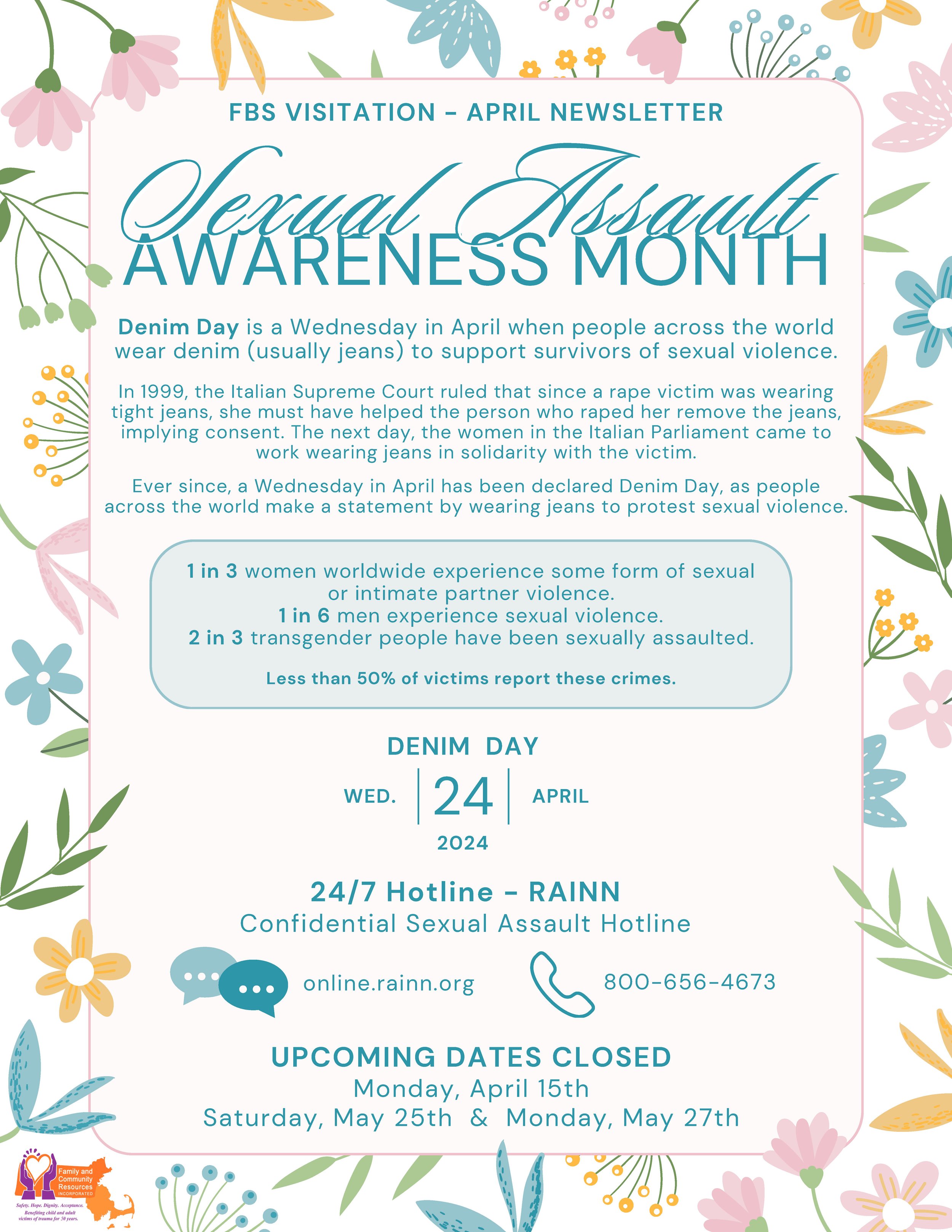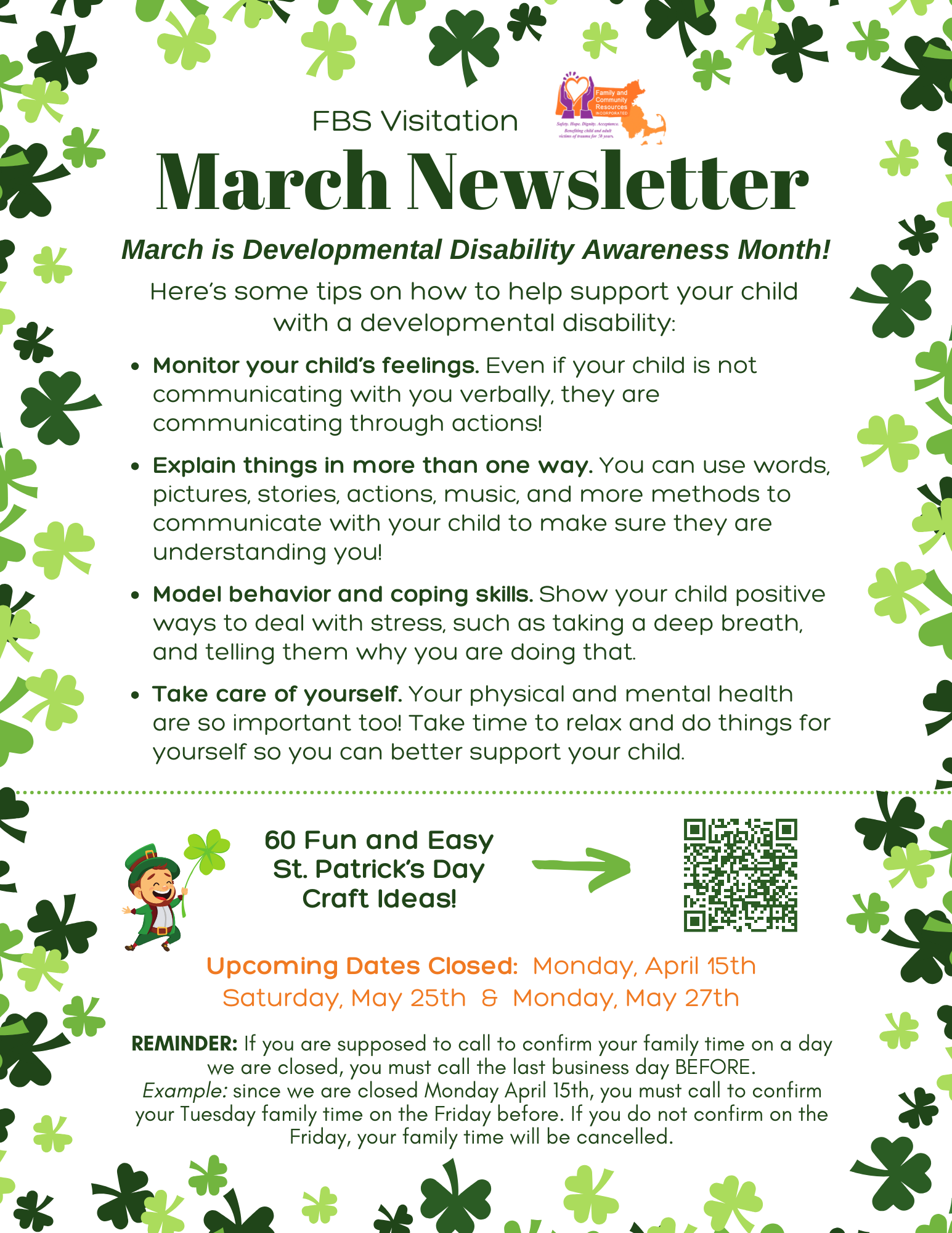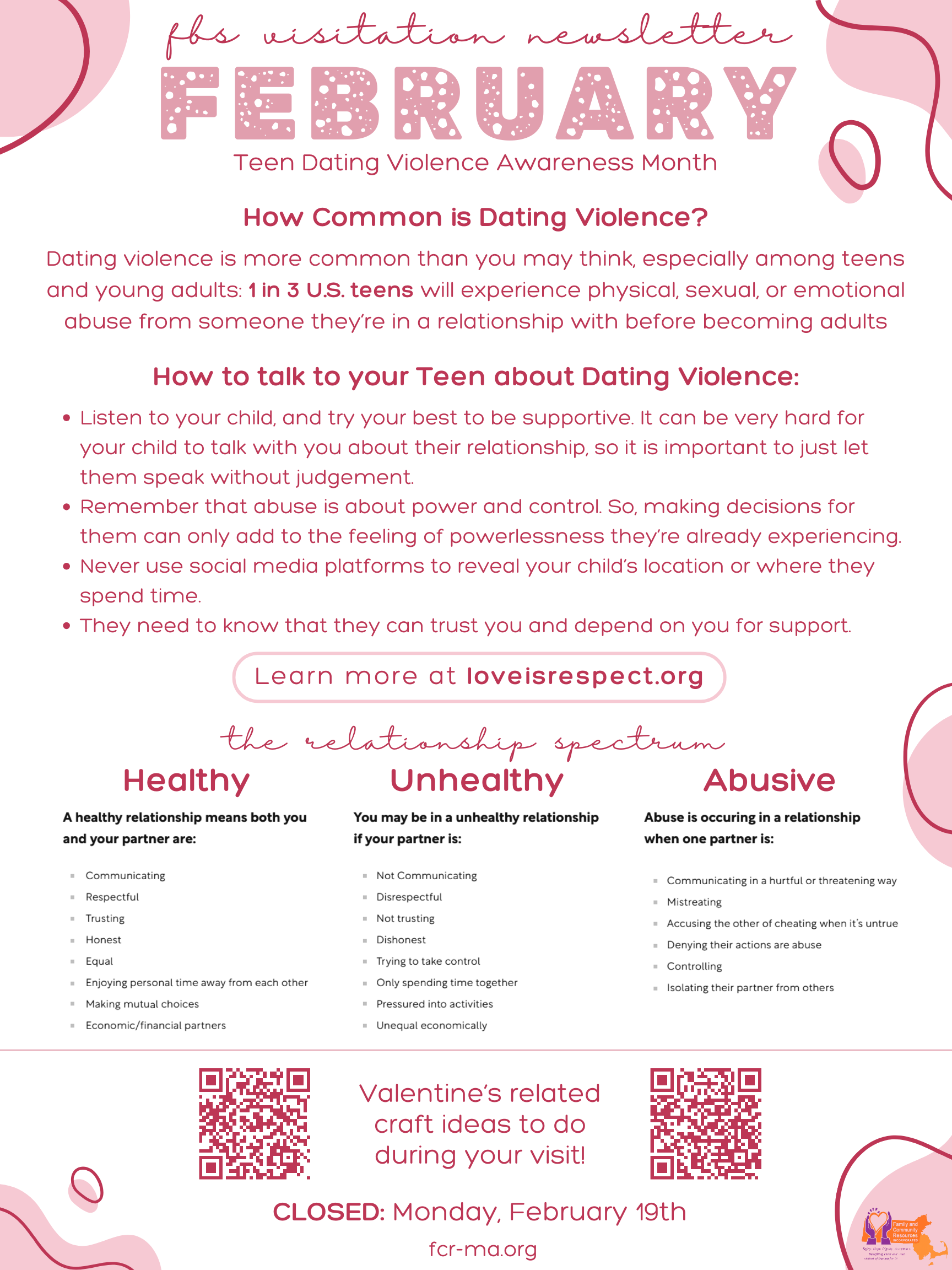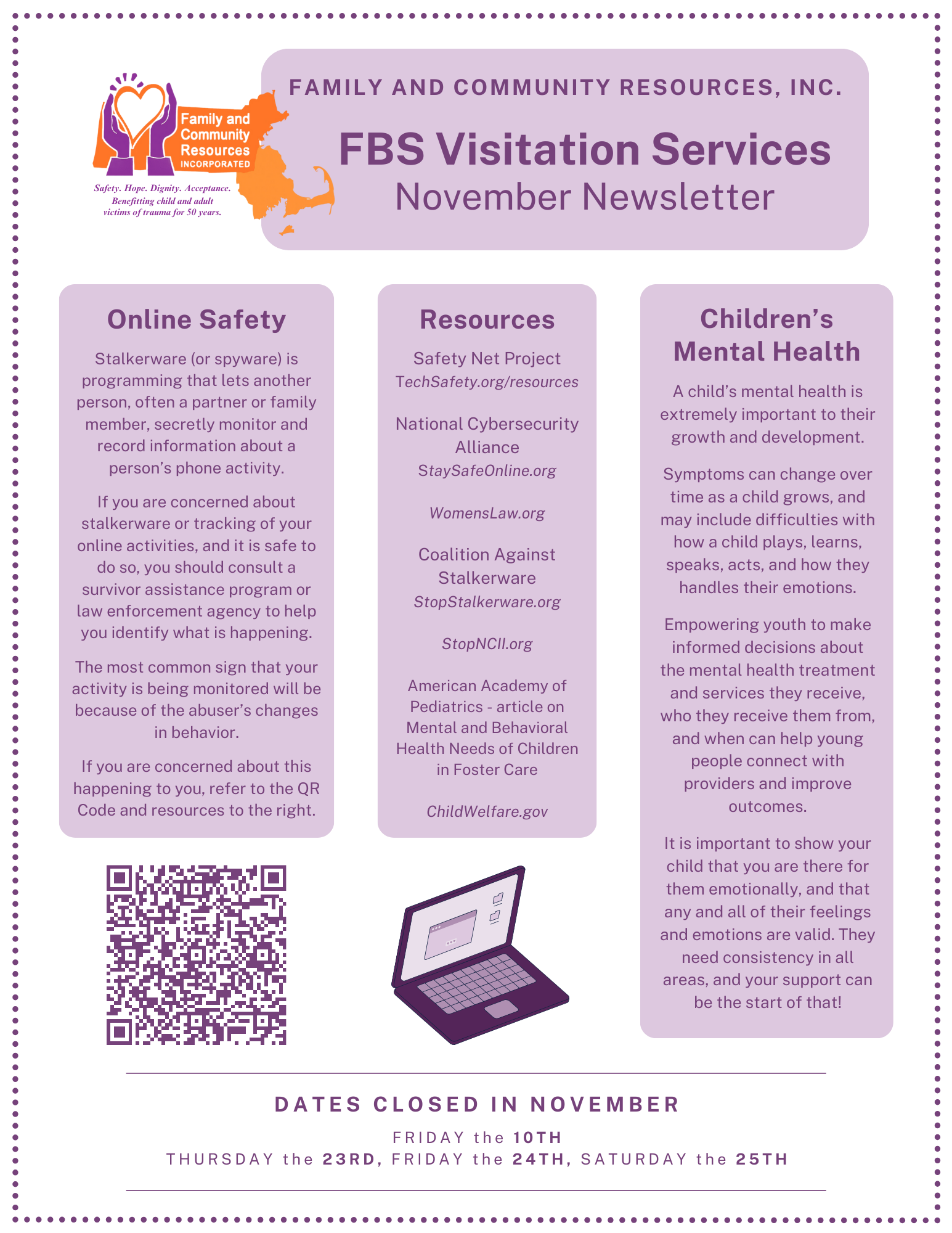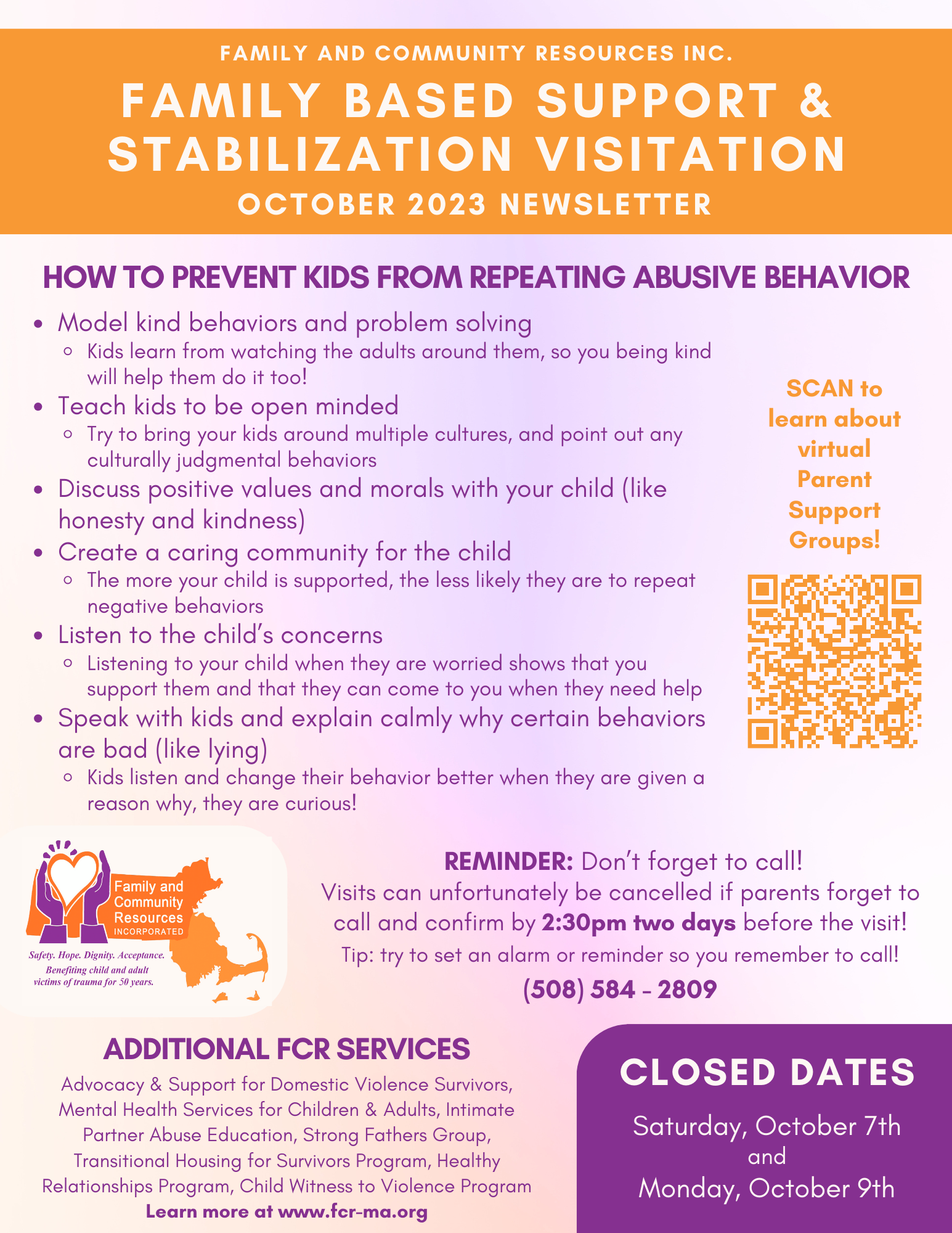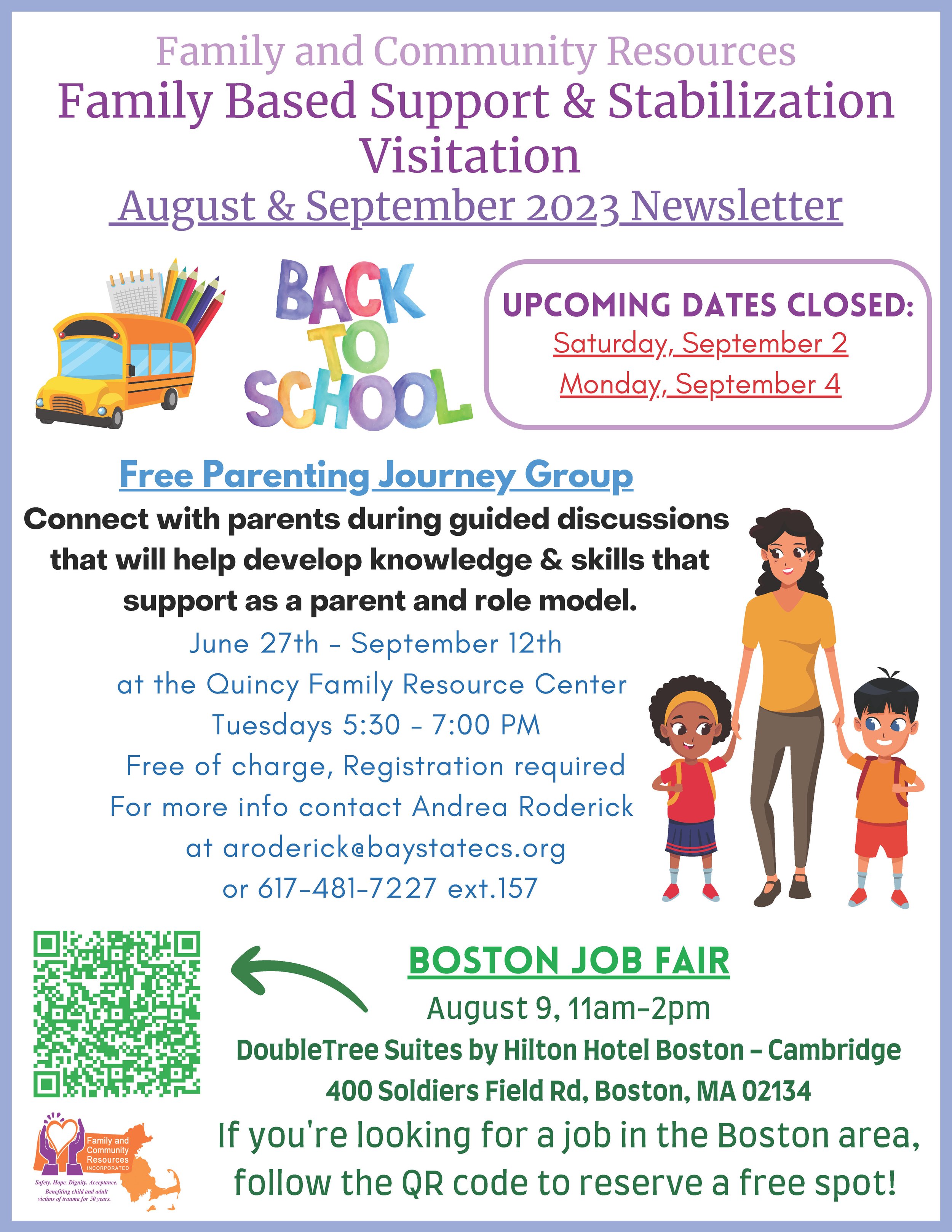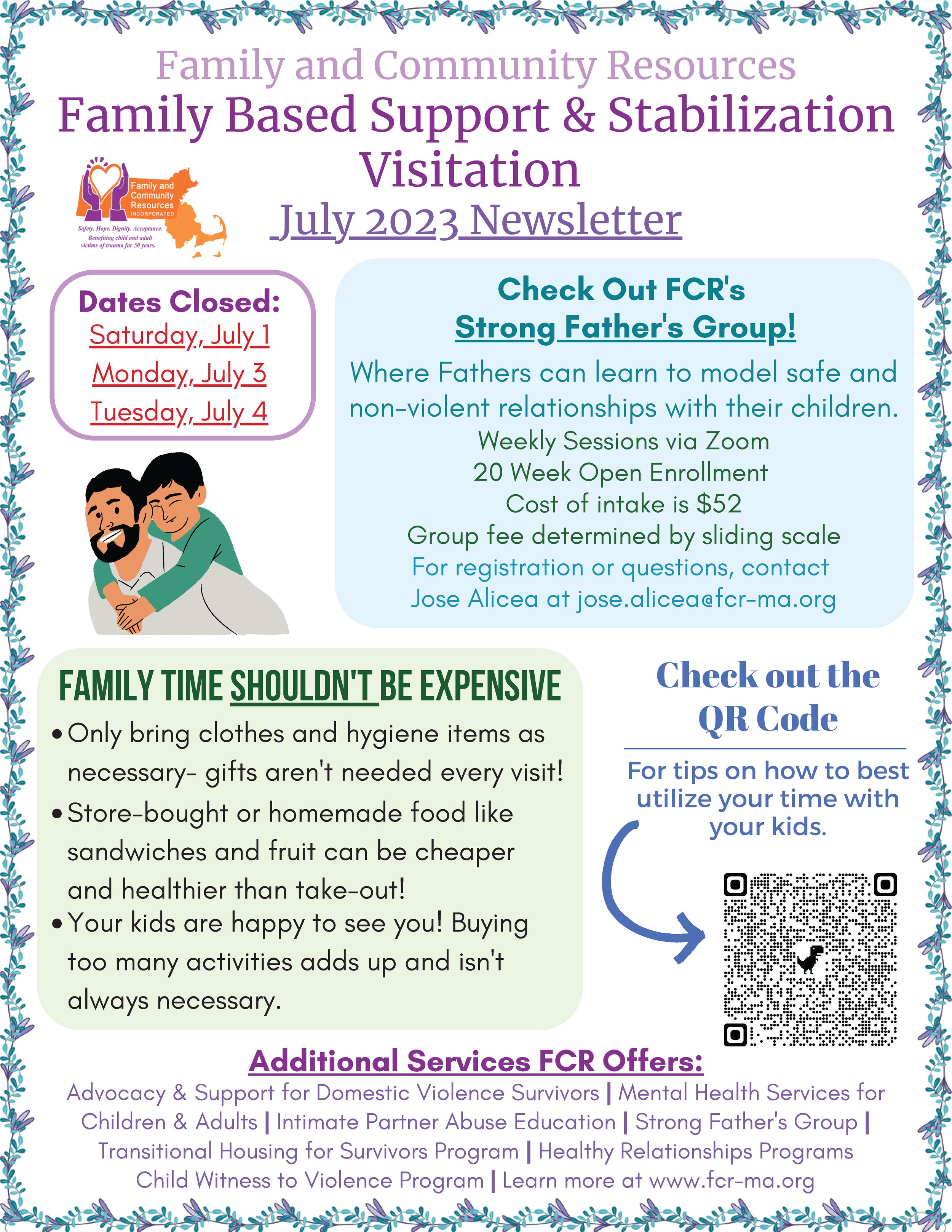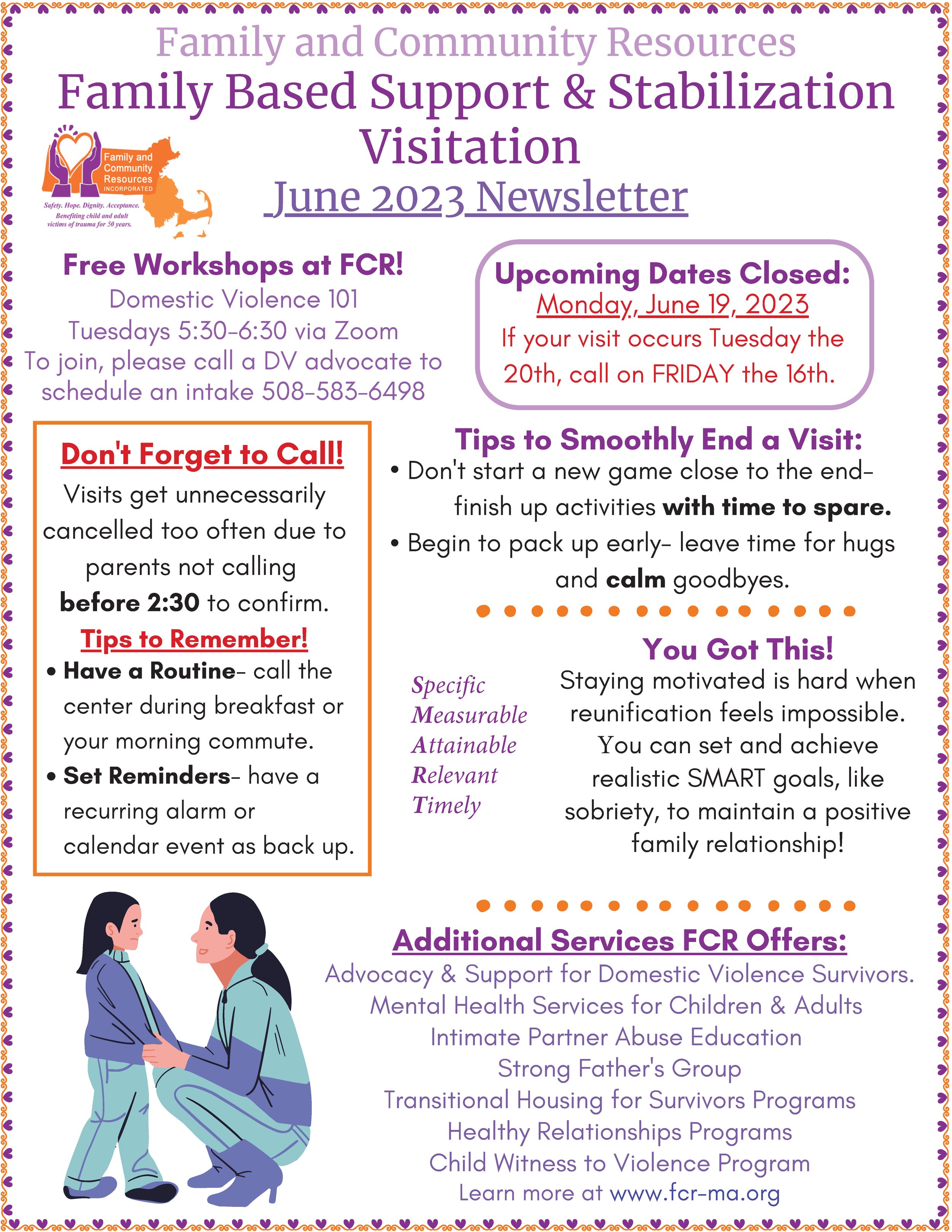Since 1991, Family and Community Resources has provided visitation services to survivors of domestic violence and sexual violence, stalking, and child abuse including on site visits, group supervision, monitored exchanges, and monitored phone calls expanding from one location to four sites throughout southeastern Massachusetts.
FCR provides a safe place where children can maintain, or in some cases, re-establish a relationship with a non-custodial parent. At the same time, the custodial parent or caregiver can feel reassured that both they and their children remain safe and protected.
FCR offers two Visitation programs:
Family Based Stabilization & Support Visitation Services (FBS)- Facilitates visits between children in the custody of the Department of Children and Families and their biological parents. Locations include Brockton and Raynham.
Court Ordered Visitation Services - Facilitates visits for families who have either a court order for visitation or come to the center on their own. Fees are determined at intake and are based on a sliding fee scale. Locations include Brockton, Hyannis, and our soon to be opened facility in Braintree.
For more information, call 508-584-2809.
SUPERVISED ON-SITE VISITATION
One-on-one supervision involves a visitation specialist observing the parent and child visit at all times, and documenting all interactions between parent and child.
Group supervision allows several families to visit in the same area at the same time. A staff member is present, but does not closely monitor the families or document the interactions.
UNSUPERVISED ON-SITE VISITATION
A safe and neutral place for no-risk non-custodial parent and child visits.
SUPERVISED EXCHANGE
FCR staff facilitates and monitors the drop-off and pick-up of children for pre-scheduled visits with the non-custodial parent.
Mildred’s Story
Mildred , a single mother of five, came to FCR through our Family Stabilization Visitation Service. Her children were removed from her custody by the Department of Children and Families. When she first came to FCR, she did not want to talk about her situation. Recently, she sat down to share her story with us and here is what she said.
Since coming to FCR, I have been able to tell my story about what my children and I have been through without being judged. Before coming to FCR, I had been dealing with domestic violence with my daughter’s father and I never sought help. FCR has helped me by listening to my problems and helping me work through them.
When my children were taken away, I felt hopeless. I did not eat or sleep and I felt like nothing was going to happen and I was not going to get my children back. Having my children taken away was [a turning point] and [through DCF] I turned to FCR to help me in my situation. I also got advice from the staff at the visitation center so I never lost faith.
When I first started to have visits with my children at the Visitation Center, I did not want to be there. I did not think I should have people watching me and the way I parent my children, but being there really helped me to work out what I could be doing better.
I also started participating in FCR’s Parenting Group. I started changing for the better for my children and myself. I used to keep everything so built up inside and never spoke about it. Now it feels so good to have to talk to someone. It has improved my attitude and I do not take out my anger on others, who I know are just trying to help me.
People do not know FCR is there to help you, they are not against you. In the beginning, if feels like everyone is against you, but they are not. FCR has helped me to better myself for my children. I have been reunited with two of my children because of FCR and working to be reuinited with all my children. I have hope because of FCR. We are currently in shelter, but it feels amazing, no more stress or anxiety. I am really in a good place thanks to FCR.
Post-Separation Abuse harms children
There are myriad ways abusers can harm children even after the protective parent escapes.
Click here to read an article by Lisa Aronson Fontes, PhD



